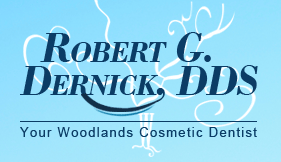The Benefits of Regular Dental Check-ups Explained
Regular dental check-ups are not merely routine appointments; they are essential for the maintenance of both your oral health and overall well-being.
This guide will delve into the reasons why it is imperative not to overlook these check-ups, what procedures typically occur during a visit, the potential advantages of consistent check-ups, and the recommended frequency for scheduling them.
The discussion will also cover the financial aspects, including costs and insurance coverage related to these appointments, along with cost-saving strategies.
It is crucial not to undervalue the significance of prioritizing your dental health; continue reading to gain further insights.
Importance of Regular Dental Check-Ups
Regular dental check-ups are integral to the maintenance of optimal oral health and the prevention of dental issues. These routine appointments are crucial for the early detection of conditions such as tooth decay, gum disease, and oral cancer. By prioritizing dental check-ups, individuals can avail themselves of benefits such as professional cleaning, cavity identification, plaque removal, and personalized treatment recommendations from their dentist.
During these check-ups, dentists conduct a thorough assessment of not only the teeth and gums but also the overall oral health of the individual. Early identification of problems like cavities and gum disease enables timely intervention, curbing the advancement of these conditions into more severe complications.
The professional cleaning administered during these visits aids in the elimination of stubborn plaque and tartar build-up that may be missed by regular brushing and flossing. Dentists can also provide valuable guidance on proper oral hygiene practices and dietary habits conducive to maintaining a healthy smile.
Why You Shouldn’t Skip Them
Neglecting dental check-ups can have adverse effects on one’s oral health and general well-being. Routine visits to the dentist are crucial for sustaining optimal oral care, preventing dental complications, and capitalizing on the advantages of early detection and treatment recommendations.
These regular appointments enable dental professionals to pinpoint any potential issues before they escalate into more severe conditions, ultimately sparing individuals from discomfort and potential financial burdens. Moreover, timely identification of conditions such as cavities, gum disease, or oral cancer can facilitate prompt and effective treatments, thereby enhancing the chances of successful outcomes. By prioritizing regular dental check-ups, individuals not only invest in their oral hygiene but also bolster their overall health and well-being.
What to Expect During a Dental Check-Up
During a dental check-up, individuals can anticipate a thorough dental examination that encompasses procedures such as cavity detection, assessment of gum disease, and dental x-rays. These assessments play a critical role in evaluating the individual’s oral health status and early identification of any potential concerns.
Cavity detection holds significant importance as it enables the dentist to identify any indications of decay in the teeth, facilitating timely intervention to prevent further deterioration.
Assessment of gum disease is essential for evaluating the gum health, which is integral to overall oral health.
Dental x-rays serve as a pivotal tool for dentists to obtain a comprehensive view of the underlying structures, aiding in the detection of issues such as concealed cavities, bone loss, or impacted teeth.
Common Procedures and Examinations
Routine procedures and assessments conducted during a dental check-up typically involve a meticulous dental examination aimed at identifying common issues such as plaque accumulation, tooth decay, and early detection of potential dental concerns. In some cases, professional plaque removal may be recommended by the dentist to uphold optimal oral hygiene standards.
Furthermore, as part of a comprehensive dental evaluation, the dentist will evaluate the condition of your gums to detect any signs of gum disease by measuring the depth of gum pockets. X-rays are frequently utilized to provide a detailed assessment of your teeth, enabling the dentist to uncover hidden problems like cavities between teeth or jawbone issues. These examinations are vital in the prevention of more severe dental issues as they facilitate the early detection of problems.
Potential Benefits of Regular Check-Ups
Regular dental check-ups provide a range of advantages, such as enhanced oral health, early detection of dental concerns, and timely treatment recommendations from your dentist. These appointments are crucial in maintaining your dental health and overall well-being.
Throughout these scheduled visits, your dentist conducts a comprehensive examination of your teeth, gums, and entire oral cavity to pinpoint any indications of decay, gum disease, or other potential issues. By identifying these problems early, you can prevent the need for more extensive treatments in the future and preserve a healthy smile. Your dentist may offer valuable guidance on proper oral hygiene practices, dietary recommendations for optimal dental health, and suggest preventive measures to ensure the strength of your teeth and gums.
These routine check-ups are paramount in averting serious dental complications and advancing your overall wellness.
Improved Oral Health and Overall Well-Being
Regular dental check-ups play a crucial role in enhancing oral health by addressing concerns such as dental hygiene, encouraging proper oral care practices, and safeguarding overall dental well-being. The advantages of these routine examinations go beyond oral hygiene, positively impacting one’s general wellness.
Consistent attendance at dental check-ups enables individuals to prevent and manage oral health issues in their early stages, thereby reducing the likelihood of more significant problems emerging later on. Through regular dental evaluations, conditions such as cavities, gum disease, or indications of oral cancer can be identified promptly, allowing for timely intervention and effective treatment. Routine cleanings and professional dental interventions assist in the removal of plaque and tartar buildup, thereby reducing the occurrence of tooth decay and gum inflammation.
This proactive approach not only enhances oral health but also plays a role in improving overall quality of life by fostering self-assurance and averting systemic health problems associated with substandard dental hygiene.
Early Detection of Dental Issues
Regular dental check-ups offer significant benefits by enabling the early identification of various dental issues, such as the development of cavities, the progression of gum disease, and potential indicators of oral cancer. Through these proactive examinations, dental professionals can promptly recommend appropriate treatment measures to enhance oral health outcomes.
The timely detection of dental problems during routine check-ups is pivotal in halting their advancement. By recognizing cavities at their initial stages, dentists can suggest straightforward fillings, thereby averting the necessity for more complex procedures in the future. Similarly, identifying indications of gum disease permits timely interventions, preventing possible tooth loss and additional complications. Moreover, the identification of suspicious lesions or irregularities in the oral cavity during regular screenings can lead to early diagnosis and treatment of oral cancers, significantly enhancing prognosis and outcomes for individuals.
How Often Should You Go for a Dental Check-Up?
The frequency of dental check-ups is contingent upon individual oral health needs. However, as a general guideline, it is advisable to schedule a visit to the dentist for a check-up at least biannually. Certain individuals may require more frequent appointments based on specific conditions or treatment necessities.
Factors such as gum disease, a history of recurrent cavities, or ongoing dental interventions like braces may warrant increased visits to the dentist for monitoring and treatment. Effective communication with one’s dentist is crucial in establishing an appropriate check-up schedule tailored to one’s unique circumstances. The dentist will assess the individual’s oral health status and provide guidance on the optimal frequency of visits to uphold a healthy smile and prevent potential issues from escalating.
Guidelines for Frequency
Recognizing the significance of routine dental examinations can assist individuals in determining the appropriate frequency for their appointments. These examinations provide a multitude of benefits, such as timely identification of dental issues, personalized treatment suggestions, and the overall upkeep of optimal oral health.
By adhering to the recommended schedule of dental check-ups advised by the dentist, individuals not only ensure the early detection of emerging dental concerns but also benefit from tailored guidance on maintaining their oral hygiene at an exemplary level. Regular attendance at these appointments enables proactive measures, averting the progression of minor ailments into more serious conditions. Placing a premium on these check-ups within one’s healthcare regimen is essential for sustaining long-term oral health and can alleviate potential discomfort and financial burdens associated with extensive treatments in the future.
Cost and Insurance Coverage for Dental Check-Ups
Understanding the costs associated with dental check-ups and the extent of insurance coverage available is critical for effectively managing one’s oral healthcare expenses. By exploring strategies to reduce dental costs and maximizing the benefits provided by insurance, individuals can ensure that their dental health remains a priority without undue financial strain.
An effective strategy involves conducting thorough research and comparing various dental insurance plans to identify one that aligns with both individual needs and financial constraints. Embracing preventive measures, such as maintaining good oral hygiene practices and attending routine check-ups, can mitigate the need for expensive dental procedures in the future.
In addition, individuals can benefit from inquiring about in-network providers and discount programs offered by dental offices to minimize out-of-pocket expenses. By maintaining a proactive approach and remaining informed about available financial options, individuals can make well-informed decisions concerning their oral healthcare needs.
Factors Affecting Cost and Ways to Save
Numerous factors impact the pricing of dental treatments and services, which encompass the scope of dental insurance coverage, the nature of the required procedures, and the caliber of services rendered by dental practitioners. To effectively manage oral healthcare expenses, individuals are advised to explore methods to reduce dental costs, such as maximizing the utilization of insurance benefits and considering cost-efficient treatment alternatives.
A pivotal element that significantly influences the cost of dental treatments is the extent of coverage offered by dental insurance schemes. Individuals who possess comprehensive insurance plans generally incur lower out-of-pocket expenses compared to those with limited coverage.
Moreover, the cost of dental procedures, whether routine cleanings or intricate surgeries, can vary significantly. Embracing preventive measures and scheduling regular check-ups can often yield long-term cost savings by preventing the need for expensive treatments for neglected dental issues.
Furthermore, the quality of services delivered by dental professionals plays a critical role in determining the overall cost, as experienced and reputable dentists may command higher fees commensurate with their expertise.



